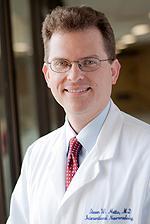VISE Spring Seminar – Steven Hetts, MD
VISE Spring Seminar
to be led by
Steven Hetts, MD
Professor of Radiology,
Chief of Interventional Neuroradiology at the UCSF Mission Bay Hospitals,
University of California, San Fransisco

Date: February 28, 2019
Location: Stevenson 5326
Time: 12:25 p.m. start, 12:15 p.m. lunch
Title:
ChemoFilter and MARC: A Tale of Two Translational Research Projects
Brief Description:
Dr. Hetts will discuss translational research to develop endovascular medical devices to reduce the toxicity from chemotherapy and to improve the treatment of stroke.
Short Bio:
Steven Hetts, MD is Chief of Interventional Neuroradiology at the UCSF Mission Bay Hospitals, where he provides cutting-edge, minimally invasive endovascular therapy for children and adults with stroke, cerebrovascular disease and tumors, including retinoblastoma. He founded the Interventional Neuroradiology services at San Francisco General Hospital and the San Francisco Veteran’s Administration Hospital, where he served as Chief until 2015. Throughout his career, Dr. Hetts has maintained an active clinical practice at UCSF Parnassus, treating patients with stroke, brain aneurysms, arteriovenous malformations, dural arteriovenous fistulas, spinal vascular malformations, and tumors including meningioma. Dr. Hetts is also the founding Co-Director of the UCSF Hereditary Hemorrhagic Telangiectasia Center of Excellence wherein he and his colleagues provide care for patients with vascular malformations of the brain, severe nosebleeds (epistaxis), and arteriovenous malformations of the lung and other organs. Dr. Hetts received his MD from Harvard Medical School and his undergraduate degree from Harvard College. He completed his medical internship at Stanford and his diagnostic radiology residency, diagnostic neuroradiology fellowship, and interventional neuroradiology fellowship at UCSF, where he joined the faculty in 2008. As Co-Director of the Interventional Radiology Research Laboratory, Dr. Hetts is involved in translating basic science and engineering research into clinical applicability. The main theme of his research is development of novel image-guided endovascular devices and techniques for the treatment of stroke, tumors, vascular malformations, and other conditions accessible through the blood vessels or skin.

